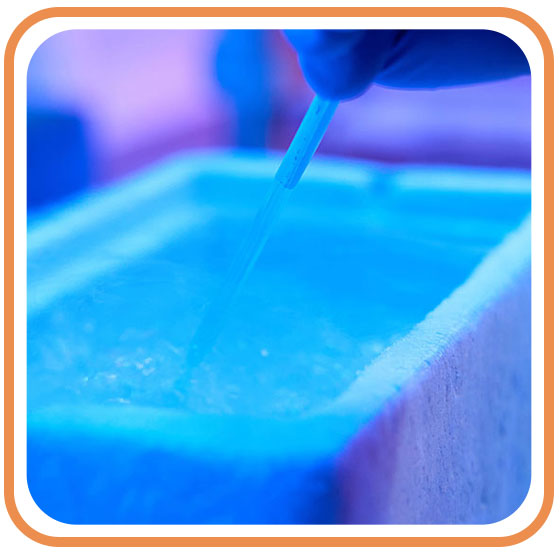The process of keeping fertilized eggs for later use is called embryo freezing, or embryo cryopreservation. This technique allows patients or couples to “store” their embryos for a long time and to conceive just when they desire.
There are many reasons that an individual may look into embryo freezing:
Preserving Fertility: Embryo cryopreservation helps maintain the possibility of having biological children in the future for people undergoing medical procedures or treatments that may impact their ability to do so, such as cancer therapies or premature ovarian failure.
Delaying Parenthood: For professional, academic, or personal reasons, it could be necessary to postpone having children. They are able to preserve their fertility and have children whenever it is most convenient for them thanks to embryo freezing.
Multiple Pregnancy Prevention: When several fresh embryos are transferred during in vitro fertilization (IVF) cycles, the possibility of multiple pregnancies can be decreased with the aid of embryo freezing. The patient is no longer forced to use all the available embryos and can freeze the remaining and unused embryos for the future.
Genetic Testing: In order to improve the selection of embryos for transfer and make more accurate and knowledgeable decisions on embryo transfer frozen embryos can be examined for genetic abnormalities prior to their implantation.
Embryo freezing is used by many such as:
Women of advanced maternal age
Patients with a history of infertility or loss due to miscarriage.
Patients with potential fertility disrupting therapies.
People who want to postpone having a family for personal or work purposes.

Contact us now for more information. 🧬
The Embryo Freezing Process:
Initial Consultation: During this appointment, your fertility specialist will review your medical history, conduct any necessary tests, and explain the process of elective embryo cryopreservation, including its risks, benefits, and potential results.
Ovulation Induction and Monitoring: To encourage your ovaries to produce several mature eggs, you will go through a series of fertility medications. Blood tests and ultrasounds will be used to monitor your progress.
Egg Retrieval: The fertility doctor will carefully remove the eggs from your ovaries in a relatively minor procedure once they reach the necessary stage.
Fertilization: To create embryos, the newly obtained eggs will be fertilized with spermatozoa from a donor or your partner using either intracytoplasmic sperm injection (ICSI) or other methods.
Embryo Development: Fertilized eggs will be cultured in an advanced laboratory setting so that they can further mature to high-grade embryos.
Embryo Freezing: To ensure the embryos’ long-term survival, the embryos will then be meticulously cryopreserved and maintained in cold temperatures using cutting-edge cryopreservation technology, such as vitrification, which prevents ice crystal formation and the damage it causes.
Storage: The cryopreserved embryos will be kept at a storage facility, where they may be monitored for deterioration and maintained at an ideal temperature.

The outcome of embryo freezing can be affected by many factors such as:
Embryo Quality: One significant factor influencing the likelihood of a successful embryo pregnancy is the quality of the embryos at the freezing stage. To ensure the best quality embryos before freezing, your fertility specialist will carefully choose the embryos after they have thawed.
Storage Conditions: To ensure the long-term viability of cryopreserved embryos, it is crucial to maintain the ideal temperature and storage conditions.
An intriguing new technology called embryo cryopreservation may allow individuals and couples to secure their future by banking their fertility. Making an informed decision about whether embryo freezing is the best option for you requires knowledge about the procedure, advantages, and factors involved.
Please do not hesitate to contact our team of fertility specialists if you would like to arrange a consultation or would want more information about embryo freezing. We are here to support you at every turn and offer you the courage to dream of starting your own family.
WhatsApp us